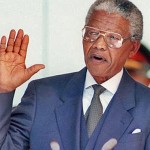Sometime during the weeks following Nelson Mandela’s death, I started thinking of The Power of One, a novel that had meant a lot to me in the early ‘90s. (In a fit of bad poetry, I once wrote, “The loneliness birds are croaking…” and feared and heard them often that decade. I still do, sometimes, though I now remember that those birds were inspired, if not stolen, from the novel’s narrator.) Among the many articles and tributes that I read to Madiba, there were references to his enjoyment of boxing as a young man, and the things that he had learned from it. Right! And The Power of One is set in South Africa, centred on the boxing obsession and exploits of a white boy, and wait, wasn’t there a black man in prison who inspired his fists and his mind? I went looking, and found a free on-line torrent (okay, my wife did), but I didn’t really get into this second reading until I was holding a paperback copy. I could say it was an unconscious desire to respect author’s rights, but it was mainly a bibliophile’s bias. I like the feel of 500 pages between my fingers.
The Power of One was a first novel by Bryce Courtenay, an Australian advertising executive who wrote the book as a mid-life challenge¹, setting his adventurous and spiritual and polemical – and, I wasn’t surprised to discover, highly autobiographical – story in his native South Africa. This rambling tale, which he’d planned as a “practice novel”, sold millions. I liked it.

